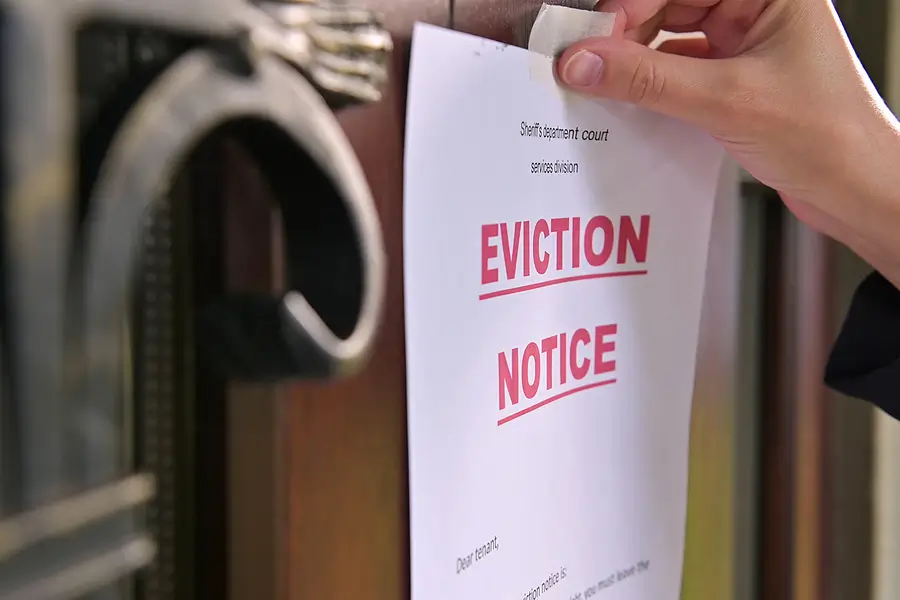Navigating the eviction process in Texas can be overwhelming. Understanding the legal requirements, tenant rights, and alternative solutions is crucial for managing rental property effectively while maintaining good relations with tenants.
This article will provide an in-depth look at simplifying the eviction process while ensuring compliance with Texas eviction laws.
Importance of Following the Eviction Process in Texas
The eviction process is not just a bureaucratic formality—it's a critical legal procedure designed to protect landlords and tenants alike. Following these steps carefully is vital to avoid costly legal battles, especially if dealing with a bad tenant, and to ensure a smooth transition.
Non-compliance can lead to prolonged disputes, potential fines, and financial losses. Landlords can protect their investments and uphold their rights by adhering to the established steps.
Pre-Eviction Requirements
Understanding Texas Landlord-Tenant Laws
Before initiating an eviction, it's important to understand Texas's specific legal framework governing landlord-tenant relationships. The process begins with a written notice to vacate. This notice must adhere to state-specific requirements, such as the method of delivery and the notice period, to be legally enforceable. Since the tenant owes rent, eviction laws vary from one location to another, familiarizing yourself with these nuances can prevent your eviction notice from being invalidated in court.
Valid Reasons for Eviction
Evictions must be based on legitimate grounds, such as non-payment of rent, lease violations, past-due rent, or property damage. Documenting these reasons thoroughly is critical for defending your eviction case in court and minimizing disputes with tenants.
For example, maintaining a detailed log of payment dates and amounts can be invaluable if a bad tenant refuses to pay rent consistently.
Serving a Written Eviction Notice
Contents and Delivery of the Eviction Notice
An eviction notice must clearly outline the reason for the eviction and the timeframe the tenant has to comply or vacate. Typically, Texas law requires a 3-day notice period for non-payment of rent or specific lease violations.
This notice should be delivered in person, by certified mail, or posted at the property, ensuring compliance with local regulations. Documenting the delivery method is important to prevent challenges regarding receipt.
Filing Eviction Proceedings
Completing and Filing Necessary Paperwork
If the tenant refuses to comply with the notice, landlords can proceed by filing an eviction lawsuit, known as a forcible detainer suit, in the local justice court. Preparing accurate and complete documentation, including the rental agreement, is vital to avoid delays and bolster your case. This includes the lease agreement, the eviction notice, and any correspondence with the tenant.
Serving a Complaint and Summons
Once the lawsuit is filed, the tenant must be served with a complaint and summons, typically by a process server or local law enforcement. This step is essential, as it ensures the tenant is formally aware of the legal proceedings and their right to respond.
Preparing for Court
Gathering Evidence and Understanding Procedures
Gathering relevant evidence, such as lease agreements, payment records, and communication logs, is critical for presenting a compelling case in court. Familiarizing yourself with court procedures and potential tenant defenses will help you effectively argue your position.
This preparation can include rehearsing your presentation and anticipating possible questions from the judge.
The Court Hearing and Ruling
Presenting Your Case and Understanding the Outcome
During the eviction hearing, both parties present their evidence and arguments. A ruling in favor of the landlord results in a judgment for possession, allowing you to reclaim your property.
Understanding the implications, including potential appeals, is essential for moving forward. Should the tenant violate the terms or contest the ruling, being prepared for an appeal ensures you are not caught off guard.
Post-Eviction Procedures
Regaining Possession and Managing Tenant Belongings
If the court rules in your favor, you can proceed with recovering possession of the property. This involves coordinating with the local sheriff to enforce the eviction if necessary.
Additionally, Texas law mandates how tenant belongings left behind should be handled, typically requiring storage for a specified period. Understanding these regulations prevents further legal complications.
Avoiding Common Pitfalls
Risks of Self-Help Evictions
Attempting to evict a tenant without following legal procedures, such as changing locks or removing belongings, can lead to severe penalties and lawsuits.
Always adhere to the formal eviction process to protect your rights and interests. Understanding these risks emphasizes the importance of legal compliance throughout the eviction process and avoids expensive court costs.
Hiring an Experienced Evictions Lawyer
Benefits and Selection Criteria
An experienced eviction lawyer can navigate the complex legal landscape, ensuring compliance and improving your chances of a favorable outcome. Look for a lawyer with expertise in Texas landlord-tenant law and a successful record in eviction cases. Their insights can be invaluable, especially in contested cases or when dealing with counterclaims from tenants.
Alternative Dispute Resolution Methods
Exploring Options Like Cash for Keys
Offering tenants a cash incentive to vacate the property voluntarily, known as "cash for keys," or tenant cash, can be a cost-effective and amicable alternative to formal eviction. Mediation and negotiation can also help resolve disputes without court intervention. These approaches can save time and preserve tenant relationships, especially in cases where the tenant is willing to cooperate.
Preventing Future Evictions
Effective Tenant Screening and Relationship Management
Implementing thorough tenant screening processes and maintaining positive landlord-tenant relationships can prevent future evictions. Screening can include background checks, credit checks, and verifying employment and rental history.
Addressing the concerns of your tenants proactively and fostering open communication can help avoid conflicts and ensure a stable rental environment.
Learn How to Simplify Your Eviction Process
Navigating the eviction process in Texas involves meticulous attention to legal obligations and tenant rights. To effectively manage your property and mitigate risks, it's crucial to comprehend these aspects and explore alternative solutions.
Prioritizing legal compliance and seeking professional advice can streamline the eviction process, safeguarding your investment while fostering positive tenant relationships.
For expert guidance, visit Monte Davis Property Management. Our experienced team specializes in maximizing property value and ensuring tenant satisfaction. Explore our comprehensive services and resources, such as property analysis and management solutions, on our website to enhance your property management strategy.









